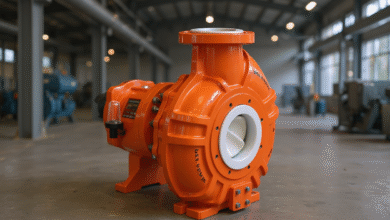The Pros and Cons of Buying from Used Car Dealers vs. Private Sellers

When it’s time to purchase a pre-owned vehicle, one of the biggest decisions buyers face is choosing between buying from a used car dealership or purchasing directly from a private seller. Each option has unique advantages and disadvantages that directly affect pricing, peace of mind, financing availability, legal protection, and long-term ownership experience. Whether you’re browsing local listings or searching online for Used trucks for sale in Louisiana, understanding the pros and cons of each route is crucial to making a confident and financially smart decision. This article breaks down the key differences between used car dealers and private sellers to help you choose the best option for your needs, budget, and risk tolerance.
Pros of Buying from Used Car Dealers
Buying from a dealership is often the preferred choice for buyers who value structure, legality, and reassurance. Dealers typically handle all documentation, title transfer, and legal compliance. Many dealerships also provide warranties or certified pre-owned programs, adding an extra layer of protection. Additionally, dealers usually offer financing options, which is ideal for buyers who don’t want to pay the full amount upfront.
Cons of Buying from Used Car Dealers
Buying from a dealership is usually more expensive. Dealerships have higher operating costs — including staffing, advertising, and reconditioning — which are built into the vehicle’s price. Some dealers may also try to upsell add-ons like extended warranties, service contracts, or overpriced accessories. Buyers must be cautious about hidden fees, dealership markups, and high-interest financing deals.
Pros of Buying from Private Sellers
Purchasing from a private seller often results in a lower purchase price because there’s no middleman or dealership overhead. Negotiations are typically more flexible, and private sellers may accept quicker cash offers. Buyers also get a more personal history of the vehicle — directly from the previous owner — including real-world insights on performance, modifications, and maintenance.
Cons of Buying from Private Sellers
Private sales come with greater risk. There are typically no warranties, no return options, and limited legal protection if something goes wrong after the sale. Buyers must handle all paperwork themselves, including title transfer and bill of sale. Additionally, there is no guarantee the seller is being truthful — some private sellers may hide mechanical issues to make a quick sale.
Price Comparison: Dealership vs. Private Seller
Private sellers generally offer lower prices, especially if they’re eager to sell quickly. However, while dealerships may charge more, their pricing often includes vehicle inspections, light reconditioning, and limited guarantees. Buyers must decide if paying slightly more is worth the added protection and convenience.
Warranty and Legal Protection
Dealership purchases often come with state-mandated or optional warranties. Some dealers offer certified pre-owned (CPO) vehicles backed by the manufacturer. In contrast, private sellers rarely offer any form of protection — once the deal is done, the buyer assumes all responsibility. From a legal standpoint, dealerships provide a safer route for cautious buyers.
Financing and Payment Options
Dealerships provide in-house financing and often work with multiple lenders, making them suitable for buyers with limited savings or average credit. Private sellers, on the other hand, usually demand full payment upfront — often via cashier’s check or bank transfer. This makes private purchases less convenient for buyers who prefer structured payment plans.
Vehicle Inspection and Transparency
Dealers usually perform basic inspections before listing a vehicle for sale and may provide history reports like Carfax. Private sellers may or may not have documentation — and some may avoid inspections altogether. However, buyers have full freedom to request an independent mechanic inspection in either scenario, which is highly recommended.
Negotiation Flexibility
Private sellers are typically more flexible when it comes to bargaining. Buyers can often negotiate more aggressively, especially when offering immediate cash. Dealerships may offer room for negotiation, but their pricing is usually tied to company policies, minimum margins, and current sales targets — making flexibility more limited.
Risk of Hidden Problems
Hidden mechanical issues are common risks in both buying options — but far more likely with private sellers. Dealers are legally required to disclose certain known issues, while private sellers may attempt to hide them. In either case, a pre-purchase inspection is essential to avoid costly post-sale surprises.
Time and Convenience
Dealerships offer an efficient, one-stop shopping experience — test drive, financing, paperwork, and delivery all handled in a single visit. Private deals require more time: messaging sellers, arranging inspections, verifying paperwork, and completing legal documentation manually. For busy buyers, dealerships provide greater convenience.
Paperwork and Legal Documentation
Dealers typically handle title transfer, registration, sales contracts, and compliance with state regulations. Private buyers must handle all paperwork themselves, which increases the risk of mistakes — such as incomplete titles, missing signatures, or unpaid liens attached to the vehicle.
Return and Refund Options
Most reputable dealerships offer return or exchange policies within a limited window, especially larger franchise stores. Private sales, however, are almost always final. If a major issue arises after purchase, the buyer has little to no recourse in most states.
Best Option for First-Time Buyers
First-time buyers usually find dealerships safer and more straightforward. The added legal protection, easier financing, and professional process can reduce stress and prevent costly mistakes. Private sales are best suited for experienced buyers with strong automotive knowledge and confidence performing independent inspections.
Best Option for Bargain Hunters
Buyers prioritizing the lowest possible price — and who are comfortable handling paperwork and inspections — may benefit more from buying directly from private sellers. However, they must be prepared to accept the higher risk and lack of post-sale support.
Conclusion
Both used car dealers and private sellers offer unique benefits, but the “best” option depends entirely on your priorities. Dealerships provide structure, legal protection, financing flexibility, and peace of mind — but at a higher price. Private sellers offer the potential for better deals and more personal negotiation — but with greater risk and zero guarantees. The smarter choice comes down to whether you value savings or security more. By weighing your budget, mechanical knowledge, and risk tolerance carefully, you can confidently choose the path that delivers the best long-term value for your next vehicle purchase.




